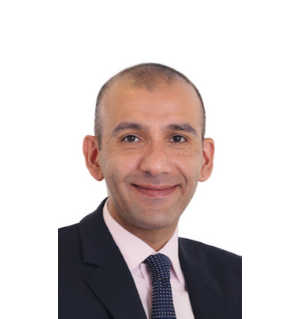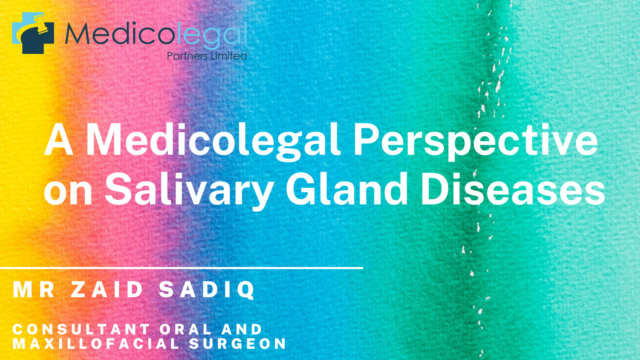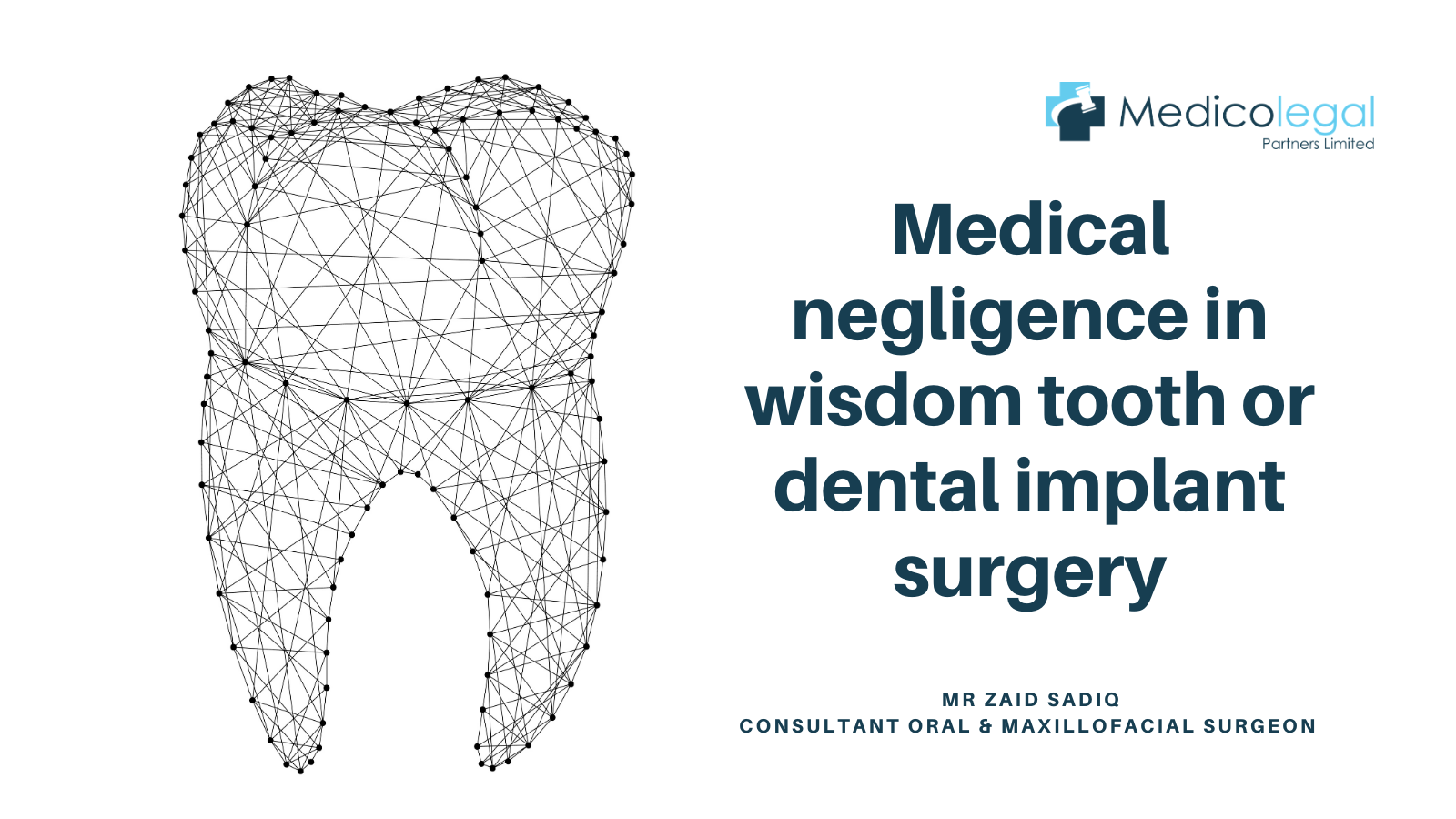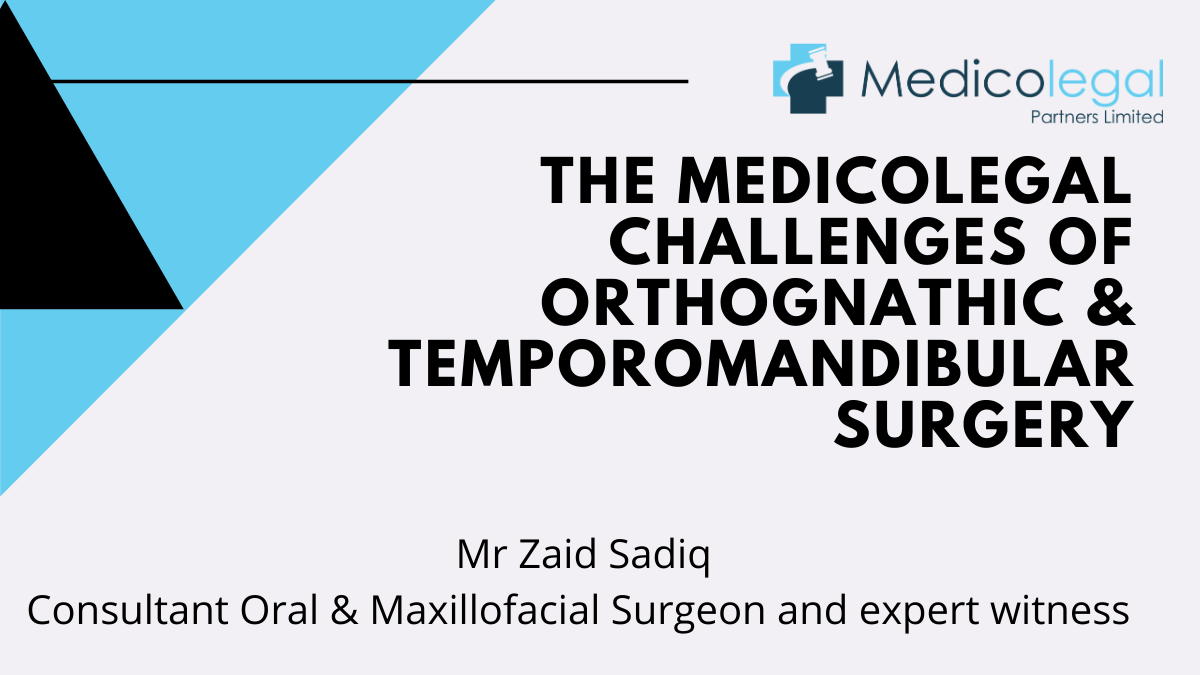The Medicolegal Implications of Failure to Diagnose and Delayed Diagnosis of Head and Neck Cancer
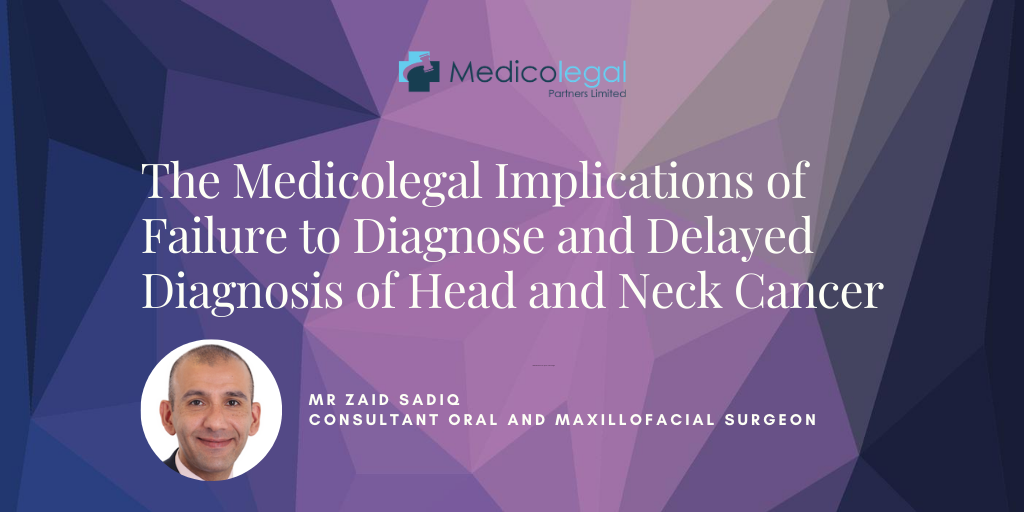
Head and neck cancers (HNC) are relatively uncommon, accounting for less than 5% of all cancers, and are generally associated with longstanding tobacco and alcohol use. However, the epidemiology of HNC is changing, which is leading to alterations in the presentation of the disease and the risk profile of a typical patient, and these differences may not be immediately recognised by some medical practitioners. For instance, in recent years there has been a significant increase in the incidence of oropharyngeal cancer caused by the human papillomavirus in younger populations, and many of these patients are non-smokers. These cancers have been shown to be unique both biologically and clinically and have a much better response to treatment, and therefore prognosis, than oropharyngeal cancers caused by tobacco smoking. Mr Zaid Sadiq, Consultant Oral and Maxillofacial/Head and Neck Surgeon, is qualified in both medicine and dentistry. He has a keen interest in cancer, reconstructive surgery and tissue engineering, as well as providing a spectrum of oral and maxillofacial practice. In this article he explores the medico legal implications of failure to diagnose and delayed diagnosis of head and neck cancer.
Delays in diagnosis of HNC can have serious consequences for the patient. This delay can be divided into two phases: patient delay, which covers the period from symptom onset to the point at which the patient first seeks medical advice; and health system delay, which is the time between the first consultation with a health professional and diagnosis by a specialist. While the second is relatively easy to measure, the impact of the first is harder to assess as the patient may not be able to accurately pinpoint when their symptoms started.
Indeed, in the early stages of HNC there may be no symptoms at all, and this can make recognition of the condition very difficult. Even if there are clinical findings, these tend to be minor and nonspecific, such as hoarseness, sore throat and pain, although sometimes a nontender neck mass is also present. The location of the lesion and the different forms of tumour presentation may also contribute to a delay in diagnosis. Tumours which are silent, have difficult access or take longer to manifest obvious symptoms will probably result in the patient failing to seek a medical opinion for some time.
Therefore, it is common for HNC cases to be diagnosed by a primary care doctor in a patient who has presented for another condition or, more often in the case of oral cancers, by a dentist during a routine check-up. Despite this, less than two-thirds of dentists routinely examine patients for oral cancer and doctors generally only do so when a patient presents with symptoms. As many cases of HNC are initially diagnosed by non-specialists, there is the opportunity for further delay while the patient is referred to an oncologist and diagnosis can be confirmed by histopathological examination.
Thus, HNC is often diagnosed at a fairly advanced stage, but this may not always be because a doctor has missed a diagnosis. The longest delay is often between the onset of symptoms and the patient seeking a consultation with their doctor. As even late-stage cases may have minimal non-specific symptoms, diagnosis requires recognition of the signs and symptoms that may indicate malignant disease in the head or neck, coupled with appropriate and accurate testing and interpretation of results.
While there is an opportunity for a delay in diagnosis or misdiagnosis to occur at every stage from when the patient first presents right through to tissue diagnosis, the implications of this are not straightforward. While some studies have shown no association between the stage of disease, delay and the outcome of treatment, others suggest that late-stage disease, which may result from delayed diagnosis, requires more aggressive therapy, responds less well to treatment and therefore has a lower cure rate. However, outcome is also very dependent on other factors, such as the biology of the tumour, so a poor outcome is not necessarily indicative of medical negligence.
Treatment of HNC is complex and involves a multidisciplinary approach. Overtreatment is a significant issue as it can lead to functional and aesthetic problems, both of which can seriously impact on the patient’s life. However, undertreatment may result in the cancer returning, and where the disease is locally advanced, the failure rate of treatment is significantly increased. Acute complications of treatment include pain, infection, dental complications, dry mouth, alterations in taste, difficulty in swallowing and alterations in speech. In the longer term, issues can arise with bone and soft tissue necrosis, scarring and fibrosis and restriction in the movements of the jaw, head or neck. Clearly, these will have a major impact on the patient’s life.
Claims resulting from HNC are relatively rare but can result in large sums of compensation being paid, due to the suffering, potential disfigurement and negative impact on quality of life that these cancers can have. The majority of claims involve alleged delays in diagnosis, or misdiagnosis. Some claims also arise from issues with treatment, which may either be due to complications, most commonly bone necrosis, or alleged negligence. In addition, dentists need to be aware that previous therapy for oral cancers may impact upon dental treatment and lead to complications which could potentially give rise to litigation. Increasing awareness of the disease in those considered to be at higher risk, such as smokers and habitual drinkers, may encourage patients to seek help at an earlier stage, which might make treatment less invasive and lead to an improved outcome for the patient.
About Mr Zaid Sadiq
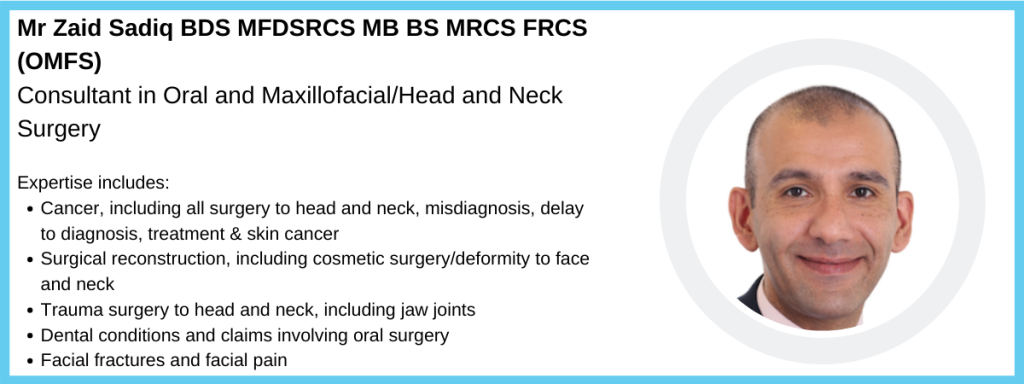
Mr Sadiq is available for instruction via Medicolegal Partners. Contact us to discuss a case.
Further Reading:
Epstein JB, Kish R V, Hallajian L, Sciubba J. Head and neck, oral, and oropharyngeal cancer: a review of medicolegal cases. Oral Surg Oral Med Oral Pathol Oral Radiol. 2015 Feb;119(2):177–86.
Felippu AWD, Freire EC, Silva R de A, Guimarães AV, Dedivitis RA. Impact of delay in the diagnosis and treatment of head and neck cancer. Braz J Otorhinolaryngol. 2016;82:140–3.

